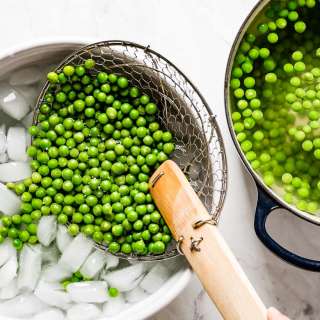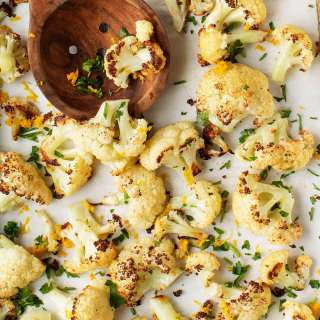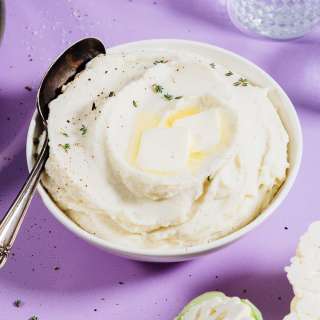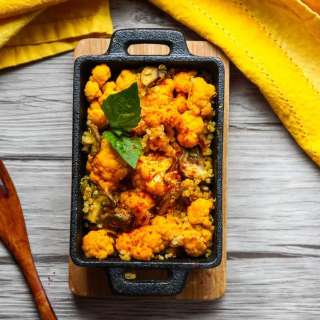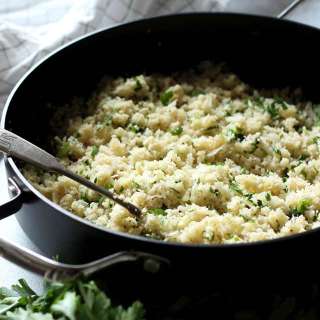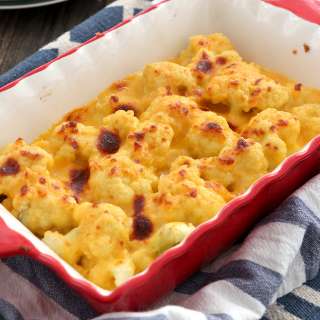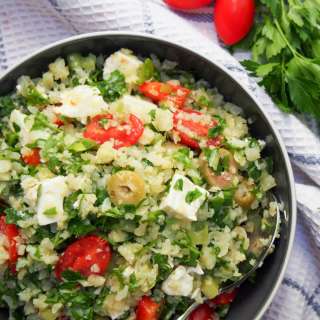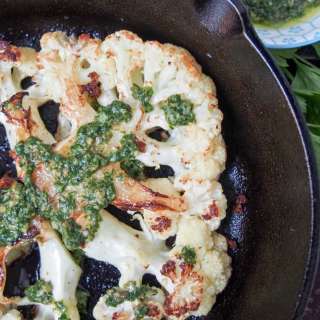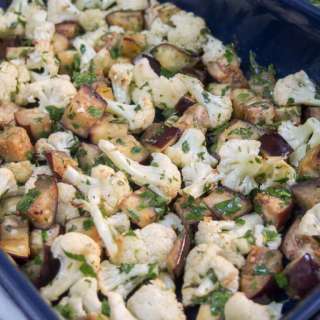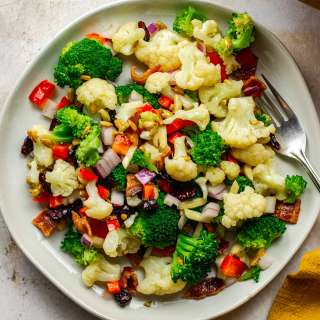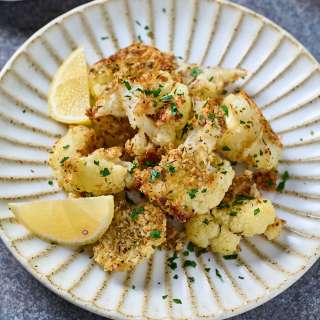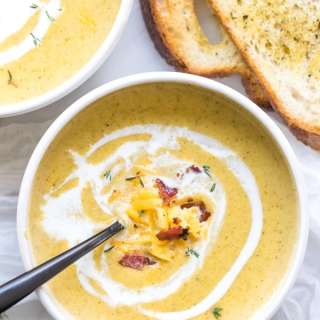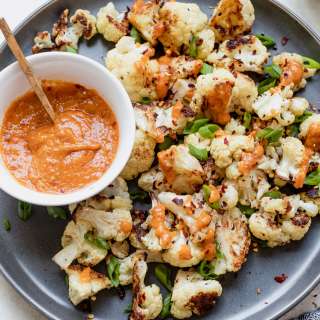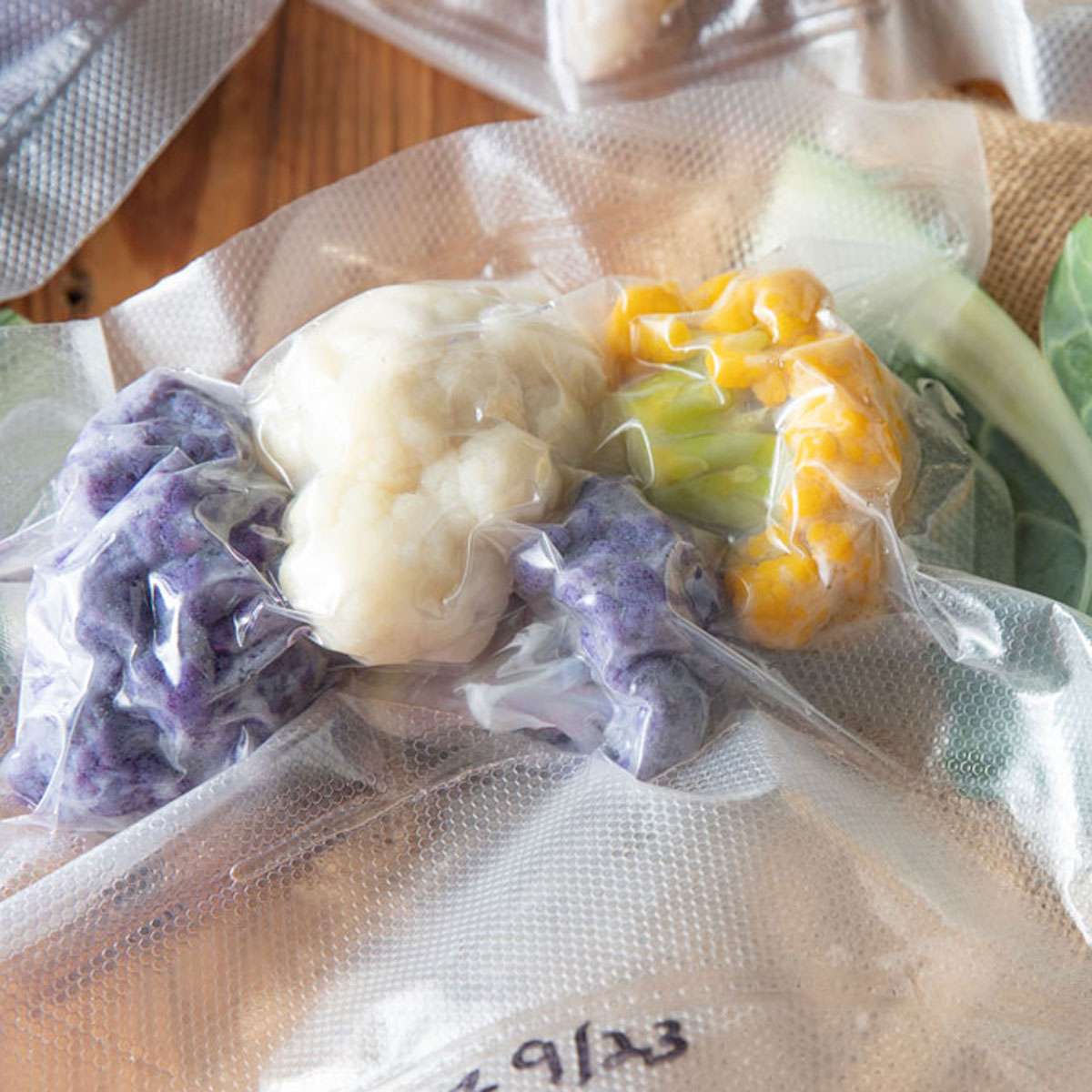
Freezing Cauliflower
User Reviews
0.0
0 reviews
Unrated

Freezing Cauliflower
Report
Freezing cauliflower is a fantastic way to preserve its freshness and nutritional value for later use. This simple guide will walk you through the steps to properly freeze cauliflower, ensuring it remains tasty and versatile for your future culinary creations.
Share:
Ingredients
- 1 head cauliflower
- 2 teaspoons salt optional
Instructions
- Wash the head of cauliflower to remove any dirt or insects left from the field.
- Remove the leaves from the fresh cauliflower. You may need to cut the stem down a bit to access the cauliflower florets. Then, cut off each floret one at a time with a sharp knife.
- Work around the cauliflower head and cut off each piece individually, leaving the core in the middle.
- Boil water in a large stockpot. Add salt, if desired. Set up a large bowl of ice water.
- Blanch the cauliflower in boiling water for about three minutes. Immediately remove the pieces to an ice bath to cease cooking.
- Drain the cooled cauliflower in a colander to dry for a few minutes. Pat it dry with a paper towel to remove excess moisture.
- Place the blanched florets in a single layer on a parchment paper-lined rimmed baking sheet.
- Freeze for several hours, then quickly package the cauliflower in freezer bags. Remove as much air as possible.
- For best results, vacuum package them in single-serving packages.
Equipments used:
Notes
- PRO TIP: Don’t throw away the leaves and the core. Package them in freezer bags and freeze them to make vegetable stock.
- How to Cook Frozen Cauliflower
- By Steaming
- In the Microwave
- How to Use Frozen Cauliflower
- Preheat the Steamer: Add water to the steaming pot. Bring the water in your steamer to a boil.
- Place Cauliflower in Steamer Basket: Arrange the frozen cauliflower florets in a single layer in the steamer basket. There’s no need to thaw them first.
- Steaming Time: Steam the cauliflower for about 5 to 8 minutes. The exact time will depend on the size of the florets and how tender you like them. Smaller florets will cook faster, while larger ones will take more time.
- Check for Doneness: The cauliflower is done when it is tender enough to pierce easily with a fork but still holds its shape. Remember, since the cauliflower is already blanched before freezing, it doesn’t require a long cooking time. Overcooking can result in a mushy texture, so it’s better to start checking for doneness at the 5-minute mark.
- Serve Immediately: Once steamed to your liking, remove the cauliflower from the steamer and serve immediately. You can season it as desired with butter, salt, pepper, herbs, or cheese.
- Prepare the Cauliflower: Place the frozen cauliflower florets in a microwave-safe dish. There’s no need to thaw them first.
- Add Water: Add a small amount of water to the dish, just enough to cover the bottom. This will create steam during cooking and help the cauliflower cook evenly.
- Cover the Dish: Cover the dish with a microwave-safe lid or plastic wrap. If using plastic wrap, poke a few holes in it to allow steam to escape.
- Microwave Settings: Cook on high power. The exact time will depend on your microwave’s wattage and the amount of cauliflower. As a general guideline, start with 4 to 5 minutes for a medium-sized bowl of florets.
- Check for Doneness: After the initial cooking time, carefully remove the cover (watch out for hot steam) and check if the cauliflower is tender. If not, microwave in additional increments of one minute until it reaches your desired tenderness.
- Drain and Serve: Once done, carefully drain any excess water. You can then season the cauliflower as desired and serve.
- Make this simple cauliflower au gratin.
- Try to roast the cauliflower.
- Add it to fresh salads to bump up the nutrition. Just thaw it and use it on a chef’s or green salad.
- Use it on grazing boards or crudités platters.
- Make a cauliflower soup.
- Cauliflower rice is a healthy, low-carb alternative to white rice.
- Mashed cauliflower is healthier than potatoes and goes well with gravies.
- Add it to soups, stews, and stir-fries to boost the nutrition.
- Make a gluten-free cauliflower pizza crust.
- Use it for quick pickled cauliflower.
- Steam it and purée for nutritious baby food.
Nutrition Information
Show Details
Calories
14kcal
(1%)
Carbohydrates
3g
(1%)
Protein
1g
(2%)
Fat
0.2g
(0%)
Saturated Fat
0.1g
(1%)
Polyunsaturated Fat
0.02g
Monounsaturated Fat
0.02g
Sodium
482mg
(20%)
Potassium
172mg
(5%)
Fiber
1g
(4%)
Sugar
1g
(2%)
Vitamin C
28mg
(31%)
Calcium
13mg
(1%)
Iron
0.2mg
(1%)
Nutrition Facts
Serving: 10servings
Amount Per Serving
Calories 14 kcal
% Daily Value*
| Calories | 14kcal | 1% |
| Carbohydrates | 3g | 1% |
| Protein | 1g | 2% |
| Fat | 0.2g | 0% |
| Saturated Fat | 0.1g | 1% |
| Polyunsaturated Fat | 0.02g | 0% |
| Monounsaturated Fat | 0.02g | 0% |
| Sodium | 482mg | 20% |
| Potassium | 172mg | 4% |
| Fiber | 1g | 4% |
| Sugar | 1g | 2% |
| Vitamin C | 28mg | 31% |
| Calcium | 13mg | 1% |
| Iron | 0.2mg | 1% |
* Percent Daily Values are based on a 2,000 calorie diet.
Genuine Reviews
User Reviews
Overall Rating
0.0
0 reviews
Unrated
Other Recipes
